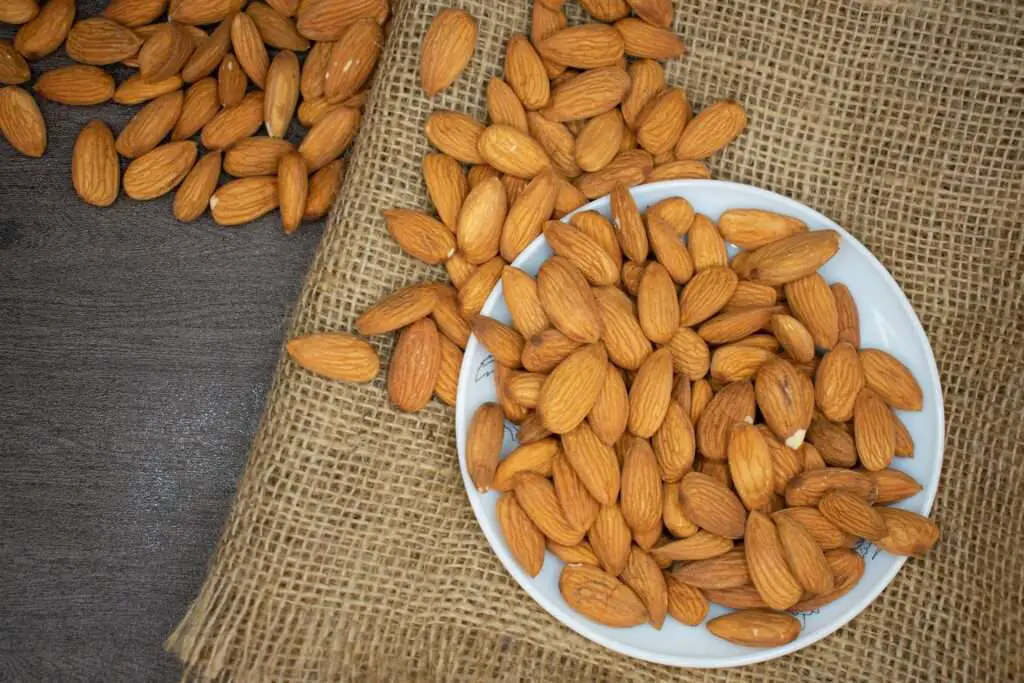Walnuts are a rich source of omega-3 fatty acids, antioxidants, and other nutrients. We will discuss the Health benefits of walnuts.

Nutritionists recommend that people consume one ounce of nuts every day. Walnuts are generally considered the most nutritious of all the nuts, although they are not all created equal. According to a study published in the Journal of Cardiovascular Nursing, they are an excellent source of omega-3 fatty acids, which have been shown to prevent heart disease and stroke.
Walnuts are also an excellent source of alpha-linolenic acid (ALA), a potent anti-inflammatory nutrient that protects your brain cells from damage.
What are Walnuts?
Walnuts are edible nuts grown on trees. They are classified as drupes.
Walnuts are grown on “walnut trees” or “Juglans spp.” The tree is in the Juglandaceae family and the genus Juglans. Walnut trees require at least 150 frost-free days to bear fruit and thrive in temperate climates with hot summers and mild winters.
There are two types of walnuts: black walnuts and English walnuts. Black walnuts grow closer to the ground than English walnuts, with a strong, sharp flavour, while English walnuts have a milder flavour and softer texture.
What are the Health Benefits of Walnuts?
Walnuts are a type of tree nut consumed since the Stone Age. They have been found in ancient graves and inside ancient Egyptian tombs. The first written reference to walnuts dates back to 500 BC when they were listed as one of the five porridge ingredients in a Chinese medicinal work.
Walnuts can be eaten raw or roasted and offer various health benefits. These include:
– Reduced risk of heart disease, stroke, and diabetes.
– Improved cognitive function.
– Increased weight loss.
Walnut Nutrition Facts That Prove They’re Good For Your Heart
Walnuts are a good source of antioxidants, omega-3 fatty acids, and other essential nutrients for heart health. They can help lower cholesterol levels and reduce the risk of heart disease.
Walnuts are not only good for your heart, but they’re also a tasty snack! They have a crunchy texture that makes them easy to eat.

For the past few decades, there has been an increase in the number of people with high blood pressure in the US. Hypertension is one of the leading causes of death worldwide because it can lead to life-threatening health conditions like heart disease or stroke. Eating healthy snacks like walnuts is essential because they can reduce your risk of developing cardiovascular disease.
Walnuts also contain plant sterols, which help reduce bad cholesterol and lower blood pressure. Walnut nutrition facts prove they’re good for your heart.
10 Nutritious Reasons to Eat Walnuts Every Single Day
Walnuts are the only tree nut that provides a significant amount of Omega-3 fatty acids. They also have a relatively high protein content and a good amount of fibre.
11) Improves Bone Quality: Researchers found that people with a diet high in walnuts have a lower risk of osteoporosis and bone fractures. This is likely because they contain an excellent bone-building vitamin K and calcium source.
10) Walnuts have a healthy dose of vitamin E. Walnuts are a great source of vitamins and minerals. One serving provides 117% of an adult’s daily requirement of vitamin E. They’re rich in dietary fibre, calcium, copper and manganese. Walnuts also contain polyunsaturated fatty acids that may protect the heart and lower LDL cholesterol levels.
9) Walnuts provide more fibre than any other nut. Walnuts have a high amount of fibre. Eating just one ounce of walnuts provides six grams more fibre than any other nut or fruit. Walnut’s high protein content is also a great way to help you feel full and satisfied after a meal.
8) Walnuts are an excellent source of protein. Walnuts are a healthy snack food. They are rich in antioxidants, have a high fibre content, and are an excellent source of protein. Protein is essential for humans to maintain muscle mass and build new cells. Walnuts are also rich in Omega-3 fatty acids, which help to reduce inflammation and improve blood circulation.
7) Walnuts contain four grams of omega-3 fatty acids per ounce. Walnuts are a great source of omega-3 fatty acids, an essential nutrient that helps with brain development and function. Walnuts also contain antioxidants which can help the body fight off inflammation and oxidative stress.
6) Walnuts are one of the richest plant sources of antioxidants. Walnuts are one of the richest plant sources of antioxidants. The typical serving size is about a quarter cup or 14 grams. Antioxidants fight inflammation and help protect cells from damage. Walnuts also contain omega-3 fatty acids, a type of fat necessary for brain health, as well as magnesium and vitamin E.
5) Walnuts have been shown to reduce blood pressure when eaten significantly regularly. Walnuts are a great source of alpha-linolenic acid, which can improve blood pressure management. Eating walnuts regularly has been shown to reduce blood pressure by up to 10%.
4) Eating walnuts has been shown to reduce LDL cholesterol levels in most people. Research has shown that walnuts are healthy for our hearts. The cholesterol-lowering effects of walnuts were first recognized in 1987 when researchers found increased cholesterol excretion in the faeces of subjects who had consumed walnuts. More recently, a 2018 meta-analysis of data collected from 14 studies found that, on average, there is a significant reduction in LDL cholesterol levels among people who have eaten walnuts.
3) A single ounce of walnut halves contains 18% RDA for folate; for centuries, walnuts have been a part of the human diet and were one of the only foods to contain folate. Today, we still consume them, which can be found in various dishes. One ounce contains 18% RDA for folate and other essential health benefits.
2) Boosts Brain Health: Walnuts contain healthy fats that can help improve brain function and memory. Walnuts are a rich source of healthy fats that can help improve brain function and memory. Eating walnuts can lower the risk of premature death, heart disease, and type 2 diabetes.
1) Reduces Risk of Heart Disease: Walnuts are rich in alpha-linolenic acid (ALA), an omega-3 fatty acid, which may help reduce the risk of heart disease by lowering cholesterol and triglycerides.
How to Easily Add More Walnuts to Your Diet
We all know that walnuts are good for us, but getting them into our diets is hard.
Walnuts are an easily missed food in the diet because they are not as common as other snacks like cereal or fruit. To reap their benefits, walnuts should be included in breakfast, lunch, and dinner. Here is a step-by-step guide to help you add more walnuts to your diet:

1) Add walnuts to your breakfast by mixing them with oatmeal, yoghurt, and granola.
2) Add walnuts to your lunch by adding them on top of salads, inside wraps, or on top of burgers.
3) Add walnuts for dinner to casseroles, pasta dishes, soups, and salads.
How to Eat Walnuts Regularly
As the nuts go, walnuts are undoubtedly one of the most popular choices, and for good reason. Packed with essential nutrients such as Vitamin E and Omega-3 fatty acids, they’re a great way to ensure your daily intake of vitamins and minerals.
Walnuts contain fewer calories than most nuts, making them a perfect snack for losing weight. They also contain high amounts of unsaturated fats, which can help your body process cholesterol more efficiently when consumed in moderation. Walnuts also have a lower glycemic index than other nuts meaning they don’t cause blood sugar levels to spike as much as other snacks might.
Start Eating More Nuts For Their Delicious Taste And Great Health Benefits
Nuts are one of the most beneficial food groups for our health.
The health benefits of nuts are extensive. From lowering cholesterol to reducing the risk of heart disease, nuts are one of the most beneficial food groups for our health. The best types of nuts to eat are raw, unsalted and unroasted.
Nuts are a great source of healthy fats, protein, fibre, vitamins and minerals. They can effectively increase your intake of these nutrients without worrying about the unhealthy trans-fats in most other snacks.

They are also a fantastic way to curb hunger between meals.
Hunger is one of the leading causes of obesity in America. It can cause low energy levels, cravings and mood swings. Hunger is a natural feeling, and we all experience it at some point.
Some people think nuts are bad for their health because they contain fat – but not all fat is the same! The fats you’ll find in nuts reduce cardiovascular disease risk by lowering blood pressure and other inflammation markers.
The Importance Of Eating Nuts Like Walnuts Everyday
There are many benefits to eating nuts, including walnuts. Walnuts have a high concentration of omega-3s, which help reduce cholesterol levels and promote weight loss. I always munch on walnuts as a quick snack because they’re easy to carry around and even better when roasted with sea salt. Walnuts are a unique and nutritious snack loaded with protein and omega-3s. They’re also a great source of fibre, which helps keep you feeling full. For a protein punch rich in healthy fats, walnuts can be added to many meals or snacks.




Pingback: 10 Healthy Foods You Should Eat To Live A Long